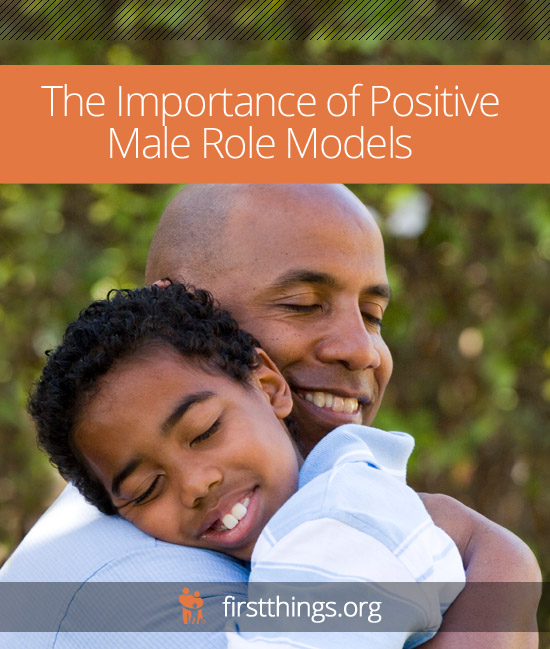In the contemporary discourse on gender, the Bahá’í teachings offer a profound and transformative perspective on male role models. The traditional notions of masculinity often perpetuate the idea that boys must eschew expressions of vulnerability, notably encapsulated in the aphorism “Boys Don’t Cry.” However, the Bahá’í Faith challenges this reductive perspective, advocating for a redefinition of masculinity that incorporates sensitivity, emotional intelligence, and compassionate virtue. This article delineates the multifaceted implications of Bahá’í teachings on reimagining male role models in our society.
To commence with, it is essential to understand the historical context of masculinity. Traditionally, masculinity has been associated with stoicism, strength, and an aversion to emotional expression. Such archetypes have not only constrained individual identities but have also fostered a societal milieu in which men may feel pressured to conform to rigid standards of behavior. Within this context, the Bahá’í Faith introduces a novel framework that emphasizes the importance of developing an expansive definition of manhood—one that is imbued with qualities such as compassion, humility, and service. This shift in perspective commences with the notion that true strength resides not merely in physical prowess, but in the ability to express one’s emotions authentically.
The Bahá’í teachings underscore the significance of emotional expression as a facet of personal development. Through the lens of spiritual growth, emotions are not seen as weaknesses; rather, they are vital components of the human experience that contribute to a holistic understanding of one’s self and others. This is exemplified in the writings of Bahá’u’lláh, the founder of the Bahá’í Faith, who articulates that the virtues of the soul are essential for the advancement of civilization. As such, male role models can embody the harmonization of strength and vulnerability, demonstrating that it is not only acceptable but commendable for boys and men to express their feelings and seek support when needed.
An additional dimension of the Bahá’í teachings is the emphasis on the principle of equality between genders. This pivotal concept asserts that men and women are both essential to the progress of humanity and should equally contribute to societal advancement. In redefining male role models, it becomes imperative to engender an environment where emotional literacy and gender equality are interwoven into the fabric of society. Males who espouse these values become torchbearers for a new generation, encouraging boys to embrace their emotions and fostering a culture of mutual respect and collaboration.
Moreover, the Bahá’í principle of service becomes a cornerstone in the formation of ideal male role models. The concept of being in service to others transcends self-interest and becomes a path towards true fulfillment. Men who engage actively in community service and social justice initiatives exemplify the Bahá’í ideal of selflessness. This form of engagement not only nurtures a sense of purpose but also fosters empathy, encouraging boys to recognize and respond to the needs of others. By embodying this spirit of service, male role models can elucidate the importance of contribution and sacrifice for the greater good.
A critical aspect of reshaping male identity within the framework of Bahá’í teachings is the cultivation of positive relationships. The dynamics of friendships and mentorship are pivotal in shaping young boys’ understanding of masculinity. Male role models must endeavor to establish deep connections that transcend superficiality and embrace authenticity. By promoting open dialogues about fears, failures, and aspirations, men can instill resilience in boys, equipping them with essential skills to navigate life’s challenges effectively. Such relationships foster environments where emotional safety prevails, allowing for genuine connections that are vital for psychological well-being.
Furthermore, the integration of moral education is essential in fostering a well-rounded male identity. Bahá’í teachings advocate for moral and ethical development at an early age. When boys encounter teachings that stress integrity, justice, and compassion, it fosters an intrinsic motivation to embody these virtues in their daily lives. This alignment of moral education with emotional intelligence equips young males with a more comprehensive toolkit for approaching relationships and societal obligations. By internalizing these teachings, they become empowered to redefine their roles within their families and communities.
In addition to fostering emotional intelligence and moral education, the Bahá’í teachings emphasize the importance of diverse expressions of masculinity. No single archetype should dominate the narrative of what it means to be a man. Role models should embody authenticity by embracing the uniqueness of their own identities and encouraging boys to do the same. This celebration of diversity not only enriches the concept of masculinity but also dismantles the insidious stereotypes that have historically inhibited personal expression.
Finally, it is crucial to acknowledge the role of mentorship in this redefinition process. Senior male figures in communities play an indispensable role in guiding younger generations. Through mentorship, older men can impart wisdom, share experiences, and model behaviors that amalgamate strength with vulnerability. This mentorship cultivates a nurturing atmosphere where boys can learn from authentic male role models who challenge conventional notions of masculinity, ultimately fostering a healthier, more inclusive vision for future generations.
In conclusion, the redefinition of male role models through the lens of Bahá’í teachings proffers a transformative vision that embraces emotional expressiveness, equality, service, and mentorship. By advocating for a more nuanced understanding of masculinity, these teachings invite boys and men to reclaim their emotional landscapes while fostering a culture of compassion and authenticity. As society progresses, the emergence of male role models who embody these tenets will not only enhance individual lives but will also contribute significantly to the collective well-being of humanity.
